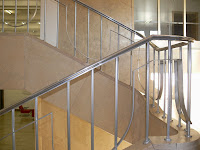VIDEO + ARTICLE:
Based on 13 years of Albert Einstein College of Medicine research, see why the NIH is betting $16 million to answer the question: “Can blocking the slow-down of autophagy delay or even prevent Alzheimer’s?”
Age is the most significant risk factor for Alzheimer’s disease. In the United States, approximately 1 in 10 people over the age of 65 have the disease, and the odds increase to nearly 1 in 3 for those over 85. However, the mechanisms by which aging increases risk are unknown.
Researchers at Albert Einstein College of Medicine, led by Ana Maria Cuervo, M.D., Ph.D., co-director of the Institute for Aging Research, have received a five-year, $16 million grant from the National Institutes of Health (NIH) to determine how autophagy, a cellular recycling process, is related to the development of Alzheimer’s disease and related dementias.
The multidisciplinary team working to untangle this puzzle includes experts in the biology of aging, neurodegeneration, metabolism, immunology, stem cells, drug development, and advanced imaging.
Autophagy is a basic cellular process that digests and recycles faulty or discarded organelles, proteins, and other material in order to keep cells functioning well. Previous research by Dr. Cuervo found that autophagy slows with age, compromising the effectiveness of this cellular waste management system and leading to compromised cellular function and disease.
How does autophagy affect tau?
“We have shown the link between autophagy and several age-related diseases,” said Dr. Cuervo, who is also professor of developmental and molecular biology, of anatomy and structural biology, and of medicine, and holds the Robert and Renée Belfer Chair for the Study of Neurodegenerative Diseases at Einstein.
“In this project, we seek to determine if and how slowed autophagy leads to the increase of tau, the toxic protein in brain cells that is the hallmark of Alzheimer’s disease. A critical part of this effort involves determining whether blocking the slow-down of autophagy delays or even prevents tau’s accumulation or its toxic effects on cell function.”
Dr. Cuervo, who has led this project for 13 years, plans to build on the accomplishments and discoveries made by the team of 8 faculty members from 6 academic departments at Einstein.
The scientists will examine the effect of compromised autophagy on peripheral tissues; the role of the lymphatic system in autophagy; and whether genetic, chemical, or dietary interventions can help reverse the decline in autophagy and the accumulation of tau.
MORE INFO:
- The project, titled “Autophagy in aging: testing geroscience in Alzheimer’s disease,” is funded by the National Institute on Aging, part of the NIH (2P01AG031782).
SOURCE:











